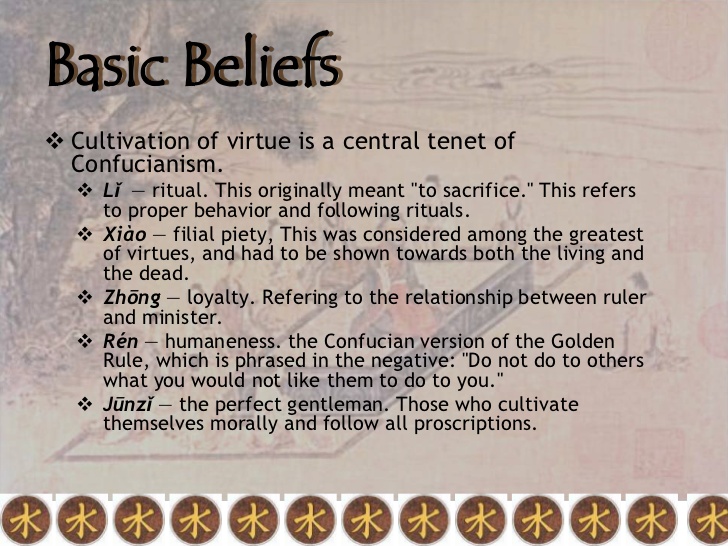Discover the main belief in Confucianism and learn how it shapes moral values, social harmony, and personal growth. This friendly, step-by-step guide explains Confucian teachings in simple words, making them easy to understand and apply in daily life. Which of the following is a main belief in Confucianism? – A Complete Guide.
When I first heard about Confucianism, I was curious about what made it so influential in shaping cultures, ethics, and education in East Asia. It turns out that the main belief in Confucianism is centered on living a virtuous life based on respect, morality, and harmony. In this guide, I’ll share what I learned about its key values and how they can be applied in our daily lives.
H2: Understanding Confucianism

Confucianism is not exactly a religion in the traditional sense. Instead, it’s a philosophical and ethical system founded by Confucius in ancient China. The main belief in Confucianism is that people should cultivate personal virtue and maintain social harmony. This means focusing on kindness, respect for others, and a sense of duty in relationships. It’s less about rituals and more about living with moral responsibility.
H2: The Main Belief in Confucianism
If I had to sum it up in one sentence, the main belief in Confucianism is that a good society is built when individuals act with virtue, respect, and kindness. The philosophy emphasizes five key relationships—between ruler and subject, parent and child, husband and wife, elder and younger siblings, and friends. Each relationship is guided by mutual respect and responsibility, ensuring balance and peace in society.
H3: The Five Key Relationships in Confucianism
Confucius believed that the harmony of society depends on the strength of these five relationships. Here’s how I understand them:

| Relationship | Core Value | Example |
|---|---|---|
| Ruler – Subject | Loyalty & Justice | A leader should rule fairly, and people should be loyal. |
| Parent – Child | Filial Piety | Respect and care for parents throughout life. |
| Parent–Child | Mutual Respect | Equal partnership with respect for roles. |
| Elder – Younger Sibling | Love & Respect | Older siblings guide, younger siblings respect. |
| Friend – Friend | Trust & Equality | Honest and equal friendship. |
H2: Filial Piety—The Heart of Confucianism
One of the most repeated values in Confucianism is filial piety, which means showing deep respect, love, and support for one’s parents and ancestors. In modern terms, it’s not just about obeying parents but also caring for them in old age and honoring their sacrifices. This value teaches that harmony in the family is the foundation for peace in the community and nation.

H2: Key Moral Values in Confucianism
I’ve learned that the main belief in Confucianism is supported by several core virtues, often called the Five Constant Virtues:
- Ren (Humaneness)—Compassion and kindness toward others.
- Yi (Righteousness)—Doing what’s morally right.
- Li (Propriety)—Proper behavior and respect for customs.
- Zhi (Wisdom)—The ability to judge right from wrong.
- Xin (Faithfulness)—Being honest and keeping promises.
These values guide personal conduct and social behavior.
H3: How Confucianism Shapes Society
Confucianism has influenced laws, education, and even family structures in countries like China, Korea, and Japan. Schools historically taught children to memorize Confucian classics, believing that good citizens are formed through moral education. The main belief in Confucianism promotes a society where leaders are moral role models, and citizens act with integrity and respect toward one another.
H2: Applying Confucian Values Today
Even though Confucianism originated thousands of years ago, its principles still apply today. I try to practice respect in relationships, honesty in communication, and kindness toward others, all of which are part of the main belief in Confucianism. Whether in the workplace, at home, or in the community, these values create stronger bonds and a more peaceful environment.
H3: Quotes from Confucius
Some of Confucius’s sayings have stayed with me because they are timeless:
“Respect yourself, and others will respect you.”
“The strength of a nation derives from the integrity of the home.”
“Real knowledge is to know the extent of one’s ignorance.”
These quotes capture the essence of Confucian moral philosophy.

H2: Common Misunderstandings About Confucianism
Some people think Confucianism is only about following traditions blindly. But I learned that the main belief in Confucianism is actually about living morally, making wise decisions, and respecting others. It doesn’t require worshiping a god but encourages honoring ancestors and practicing virtues that strengthen families and communities.
H3: Confucianism vs. Other Philosophies
| Philosophy | Focus | Belief About Morality |
|---|---|---|
| Confucianism | Social harmony & virtue | Morality is learned through relationships and education. |
| Taoism | Harmony with nature | Morality comes from following the natural way. |
| Buddhism | Ending suffering | Morality is key to enlightenment. |
This table shows how Confucianism is unique in focusing on moral relationships in daily life.
H2: My Personal Reflection
Learning about the main belief in Confucianism has made me more aware of how important respect and kindness are in our lives. I see that small actions, like listening to others and fulfilling responsibilities, can lead to a happier and more harmonious world. These values are not outdated—they’re more relevant than ever in our busy, divided modern world.
H2: Key Takeaways
- The main belief in Confucianism is that virtue, respect, and harmony create a better society.
- Five relationships form the backbone of Confucian thought.
- Filial piety is central to maintaining family and community balance.
- The Five Constant Virtues guide moral behavior.
- Confucian values can still improve modern relationships and communities.
Conclusion
The main belief in Confucianism—that a virtuous and respectful life builds a harmonious society—is timeless wisdom. I’ve found that practicing kindness, fulfilling responsibilities, and respecting others can transform relationships and communities. Confucius’s teachings remind us that moral character is not just personal—it shapes the world around us. By applying these values today, we can keep the spirit of Confucianism alive in a modern, meaningful way.


